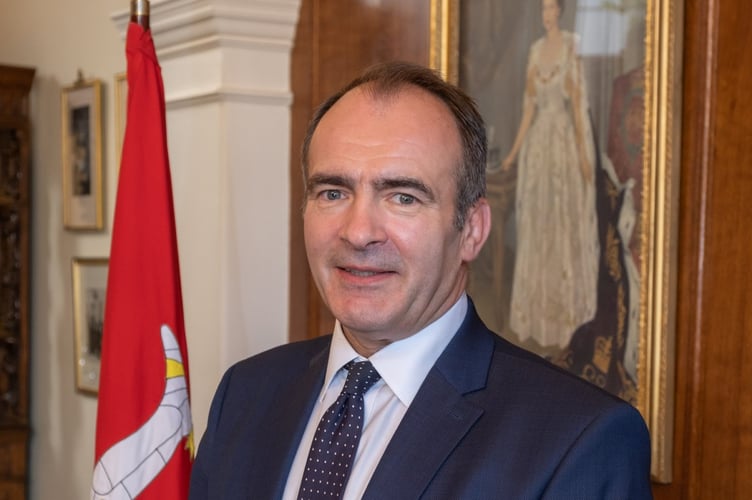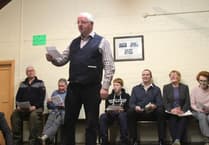The Isle of Man Government's Chief Minister, Alfred Cannan, has issued a statement on the Covid review at the Tynwald's first sitting of the year.
The 3,500-plus page Covid Inquiry report was published last week and examines how the island's authorities handled the coronavirus pandemic.
Inquiry chairman Kate Brunner KC insisted the government had not had any control over her team’s independent report and has not seen any part of it before it was published. The Chief Minister previously issued a statement saying there were 'lessons to be learned' from the report.
Below is a selection of articles produced by Isle of Man Today on some the review's findings.
- Government acted later than it should have to control coronavirus
- Covid review finds the government was wrong to blame Steam Packet
- Isle of Man nursing home likely not to blame for outbreak which claimed 20 lives
- Isle of Man residents quarantined at Covid hotel were 'treated like prisoners'
- Advice given by Isle of Man's top doctor was not withheld from ministers
In an address to members of Tynwald this afternoon (Tuesday), Mr Cannan outlined a brief timeline of planned steps to be taken following the publication of the report.
The Chief Minister's statement in full:
Mr President, a report into the way the Isle of Man Government responded to the Covid-19 pandemic was published last week and will stand as an important record of an extraordinary time in our Island’s history.
Running to more than 3,600 pages it is comprehensive in its detail and examines how the administration at the time dealt with an unprecedented set of circumstances which played out on a global scale.
While reflecting on the experience that Government went through - how decisions were made and what lessons may be learned - we should firstly remember those who lost their lives or feel the lasting effects of long-Covid or grief.
The impact of the pandemic continues to be felt among people in our community and the publication of the report last week will have stirred painful memories.
Acknowledging this fact brings into sharp focus the importance of the work that’s taken place during the report’s production.
It’s crucial that we are able to examine what happened, explore what could have been done better and, as a result, be better prepared to serve and protect our community in the future.
I would like to use this opportunity to place on record my sincere gratitude to Kate Brunner KC and her team for the task they’ve undertaken on behalf of the Isle of Man and its people.
Evidence has been gathered from all corners of our community with dignity and respect.
I pay tribute to everyone who made themselves available and took the time to recall their experiences. For many this will not have been easy.
The report has concluded that, within Government, decisions were made with the best of intentions and Ministers, politicians and officers, including staff across the whole of the public service, worked long hours for sustained periods, dedicated to doing their best for the Island and its people.
I would like to offer them our grateful thanks.
Many positive observations are drawn out within the report and point to the strength of our community and its collaborative spirit.
Our Health and Social Care services were at the frontline throughout and I would like to pay tribute to everyone involved for their hard work and fortitude.
Charities, volunteer groups, businesses and individuals also played their part in helping to navigate the circumstances thrown up by a global pandemic, and I thank them for that.
The report that’s been produced by Ms Brunner and her team presents a full and independent perspective of how the Isle of Man Government acted throughout the pandemic, including 31 recommendations.
The review has been careful to ensure its conclusions and findings are supported by evidence gathered during interviews and from information contained within almost three hundred thousand documents provided by Government. The review also found that there was no attempt from Government to withhold or tamper with records.

Mr President, whilst the review has concluded that whilst the response to COVID was broadly successful and reasonable, there are many issues to address and lessons to be learnt.
These will be assessed as the contents of the report are digested in the coming weeks, but I am pleased to note that work relevant to some of the matters highlighted has already taken place.
These include, but are not limited to:
- revising our emergency plan, and increasing capacity through the appointment of a deputy emergency planning officer
- supporting a better organisational culture through the Great Place to Work programme - now called Our Public Service
- making sure staff voices can be heard via the introduction of the Integrity Line, underpinned by a relaunch of the public service whistleblowing policy
- ongoing assessment of an independent review into the Office of Human Resources
- improving governance through the creation of the Chief Executive Officer role and the Chief Operating Officer position in the Cabinet Office
- making changes to allow for the appointment of non-executive directors to provide constructive challenge to the operation of departments
- establishing a Children’s Services Improvement Board that reports to the Health Learning and Social Policy Board
- continuing work on information governance and record keeping as part of the ongoing project into health and care transformation
However, the core purpose of my statement today is to let this Honourable Court know how this Government will formally respond to the report’s recommendations.
Ms Brunner will be returning to the Island on the 18th of March to engage further with the Council of Ministers and Tynwald Members.
This will allow Honourable Members to ask further questions of the review team once they have time to digest the report and the recommendations.
I then intend to move this report for debate in April along with an early assessment of our response to the recommendations.
This date will, I hope, allow Hon Members a full chance to provide their own considered views regarding the report’s findings.
Following this debate, work will then take place to prepare final recommendations for action to be delivered to the Tynwald sitting in July, alongside those actions which are already well underway across Government.
Mr President, I am keen to acknowledge that this is very much Tynwald’s report.
I am outlining this timeline as a potential and reasonable approach to debating this matter, but Council are of course willing to take further views on this planned process if Honourable Members would rather see an alternative course of action.




